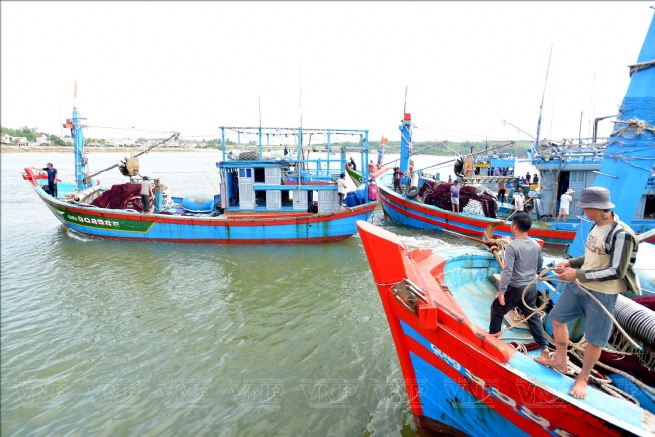10:33:09 AM | 11/23/2025
Over the past years, the National Steering Committee on Combating Illegal, Unreported, and Unregulated (IUU) Fishing, directly led by the Prime Minister, has held weekly Tuesday meetings with participation from multiple ministries and online connections with all coastal provinces and cities. The goal has been clear and urgent: to lift the European Commission’s (EC) yellow card.

According to Prime Minister Pham Minh Chinh, this is an imperative task that cannot be postponed and must be completed, for the honor of the country, the credibility of the Party and State, and the reputation of Vietnamese people on the international stage, while also ensuring sustainable development of the fisheries sector.
In November 2025, an inspection team from the European Commission is scheduled to visit Vietnam for the fifth IUU review. This represents a decisive opportunity for Vietnamese seafood to access the European market, which accounts for approximately 20% of the country’s seafood export value. After eight years of continuous efforts under direct government guidance, Vietnam is entering the most critical phase to remove the IUU yellow card.
The final obstacle preventing the EC from lifting the yellow card is the continued presence of some Vietnamese fishing vessels in foreign waters, considered by the EU as the most serious violation. The 2017 Fisheries Law requires that 100% of vessels 15 meters or longer be equipped with and maintain a Vessel Monitoring System (VMS).
Currently, more than 99% of fishing vessels nationwide have VMS installed. Provinces with rapid progress, including Quang Ninh, Thanh Hoa, Quang Ngai, Can Tho, Ha Tinh, Khanh Hoa, and Dak Lak, have achieved full compliance for vessels 15 meters and above, while also monitoring weekly “red-list” vessels at risk of violations.
Many provinces have publicly released lists of vessels that lose connection or show signs of crossing maritime boundaries and have shared this information with neighboring countries’ coast guards to enable bilateral monitoring, meeting the EC’s requirements for cross-border enforcement.
Over the past 12 months, Vietnam has pursued criminal prosecutions for VMS violations, rather than merely issuing warnings or administrative fines as in previous years. According to the Ministry of Public Security, from 2024 to October 26, 2025, there were 84 cases involving 130 defendants, with 43 cases involving 88 defendants going to trial.
Europe is a high-end market with strict requirements for environmental standards, social responsibility, and food safety. Seafood sourced from illegal, inhumane, or environmentally harmful practices is not accepted by European consumers. Therefore, the actions of a small number of Vietnamese fishermen or businesses pursuing personal gain could have long-lasting negative effects on the reputation of the entire fisheries sector, as well as the livelihoods of the majority of law-abiding farmers and fishers.
Since 2017, Vietnam’s seafood exports to the EU have declined sharply. Many shipments are subject to 100% inspection, customs clearance times have lengthened, and costs have increased by 15 to 20%. In 2024 alone, nearly 10,000 seafood export consignments were checked for documentation, with over 50% held for origin verification.
The EU currently imports approximately US$22 billion in seafood annually, of which Vietnam once accounted for over US$1.5 billion. Successfully removing the yellow card would restore the competitiveness of Vietnamese seafood. Compliance with IUU rules is not only crucial for the EU market but also serves as a “passport” to other high-standard markets, including Japan, the United States, and Australia.
Seafood enjoys significant tariff advantages. If the yellow card remains, these benefits are effectively lost, especially as Vietnam participates in free trade agreements such as the EU-Vietnam Free Trade Agreement (EVFTA), the Comprehensive and Progressive Agreement for Trans-Pacific Partnership (CPTPP), and the United Kingdom-Vietnam Free Trade Agreement (UKVFTA), further impacting the competitiveness of Vietnamese seafood businesses.
If Vietnam successfully removes the yellow card in 2025, it will mark a milestone for the fisheries sector, restoring access to the EU market and strengthening the nation’s image as a responsible seafood producer. This success will not only expand export opportunities but also promote sustainable fishing practices, where fishermen earn a stable living through legal activities, businesses thrive through transparent value chains, and the country reinforces its sovereignty and commitment to protecting marine resources.
Anh Mai (Vietnam Business Forum)